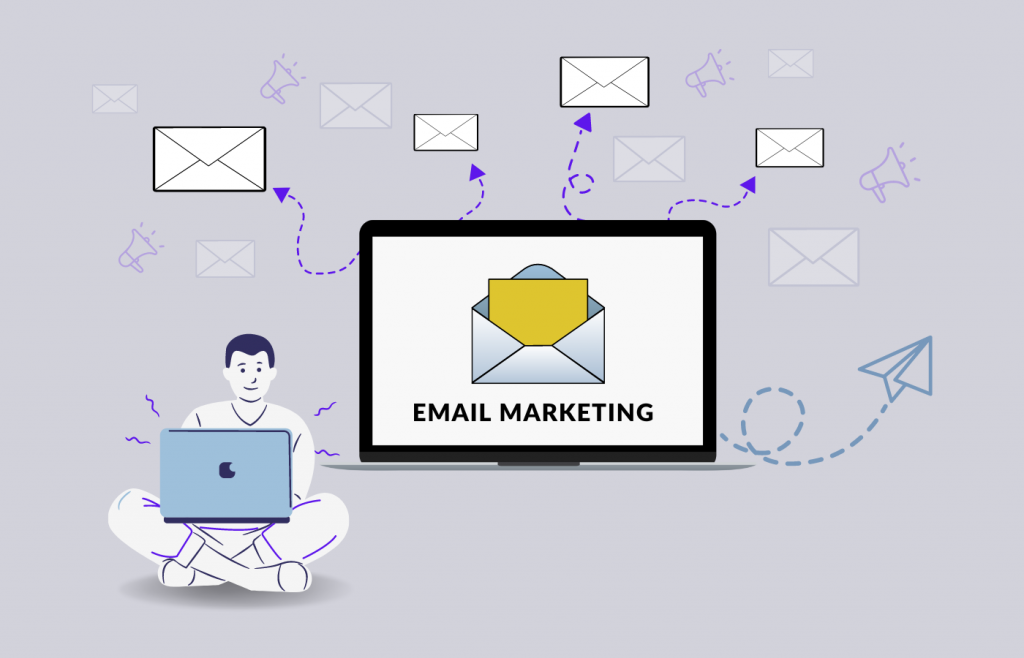
Have you ever pondered whether email marketing remains relevant or has become an outdated relic in today's digital marketing landscape? Is Email marketing legit?
Well, here’s the spoiler – email marketing not only maintains its legitimacy in 2024 but also stands as a powerhouse that many businesses overlook.
Let's dispel any uncertainties and explore the validity of utilizing email for marketing, uncovering the untapped potential of this digital workhorse.
What is Email Marketing?
Email marketing is a direct marketing channel enabling businesses to disseminate information about new products, promotions, and updates to customers on their contact lists.
Since subscribers opt to receive these emails, they are more likely to convert compared to other channels. Its high return on investment (ROI) underscores its importance within most businesses' overall inbound strategies.
Modern email marketing has evolved beyond generic mass mailings, focusing instead on consent, segmentation, and personalization to effectively engage target audiences. It revolves around comprehending customer interests to foster enduring relationships.
While crafting personalized campaigns may seem time-intensive, marketing automation and software streamline much of the workload.
In the long term, a well-structured email marketing strategy not only drives sales but also cultivates a community around the brand.
Is Email Marketing Legit?
Yes, email marketing is a legitimate and widely accepted digital marketing strategy.
It entails sending targeted messages via email to a group of individuals to promote products, services, or engage with the audience.
Legitimate email marketing campaigns adhere to ethical practices, obtaining consent from recipients and offering options to unsubscribe.

It serves as a cost-effective and efficient means for businesses to communicate with their audience, bolster brand recognition, and spur conversions.
However, it's vital to differentiate between legitimate email marketing and scams, implementing security measures and ethical guidelines to safeguard both the business and its subscribers.
You Might Also Like: Is Affiliate Marketing Legit?
Benefits of Email Marketing
Here are some main advantages of Email marketing.
Email marketing presents a plethora of benefits that render it an invaluable strategy for businesses, particularly smaller ones operating within constrained budgets. Here are the primary advantages:
Cost-effectiveness: Email marketing proves highly economical, enabling businesses to connect with their audience without incurring substantial expenses. This affordability is especially advantageous for small businesses seeking to maximize their marketing budget.
Augmented Website Traffic: By strategically incorporating website links within email content, businesses can drive recipients to their online platforms. This not only amplifies website traffic but also enhances online visibility, ultimately yielding valuable leads.
Expansion of Client Base: It serves as a potent tool for establishing connections with potential customers while nurturing relationships with existing ones. This nurturing process fosters the expansion of a loyal client base, a cornerstone of long-term success.
Sales Uplift: Email marketing serves as a highly effective sales tool, nurturing leads and guiding potential customers through the purchasing journey. Calls-to-action and personalized content play a pivotal role in influencing decision-making, resulting in increased sales and revenue.
Brand Promotion: Email campaigns play a pivotal role in bolstering brand awareness. Directly conveying a brand's message, values, and offerings, they contribute to cultivating a positive brand image. Engaging content and well-crafted designs further amplify this effect.
Personalization for Enhanced Engagement: Personalized emails, tailored to recipient preferences, behaviors, and demographics, substantially elevate engagement rates. This personalized approach fosters stronger relationships with the audience, cultivating trust and loyalty.
Measurable and Trackable Results: Email marketing furnishes transparent and trackable results through analytics tools. Businesses can evaluate campaign performance, pinpoint areas for enhancement, and gauge ROI. Thus, this data-driven approach facilitates informed decision-making and optimization of strategies.
Tips For An Effective Email Marketing Strategy

To ensure the effectiveness of your email marketing efforts and maintain credibility with your audience, adhere to these key practices:
1. Creat a Quality Email List
Establish a strong foundation by curating an email list comprising individuals genuinely interested in your offerings. Utilize website registration forms and pop-ups to capture email addresses from potential customers and subscribers.
2. Create Compelling Subject Lines
Capture the attention of your readers from the outset with compelling subject lines. Craft concise yet descriptive subject lines that entice with persuasive language, steering clear of clichés and overused phrases.
3. Optimize for Mobile Viewing
Ensure that your emails are optimized for viewing on mobile devices.
Adapt your content for small screens by shortening subject lines, eliminating extraneous content, utilizing larger fonts, incorporating thumbnail images, and providing clear calls-to-action for a seamless mobile experience.
4. Avoid Spam Filters
Protect your emails from being flagged as spam by employing spam checkers to identify potential issues before sending. Adhere to best practices and avoid common spam triggers to increase the likelihood of your emails reaching your audience's inbox.
5. Embrace Audience Segmentation
Tailor your email content by segmenting your audience based on shared characteristics. Personalization is paramount to enhancing engagement and ensuring that your emails resonate with specific groups, preventing them from feeling generic.
6. Perfect Your Timing
Timing plays a crucial role in email marketing success. While optimal email open times may vary, experimenting with sending times can help you determine what works best for your audience.
Additionally, consistency in your sending schedule is key.
7. Deliver Valuable Content
Provide content that addresses the needs and challenges of your audience. Your emails should offer genuine value and relevance to your subscribers.
Avoid generic or uninteresting content, as building trust and credibility hinges on consistently delivering content that resonates.
Final Words: Is Email Marketing Legit
So, is email marketing legit? Absolutely. While it has the potential for misuse, a well-crafted email marketing campaign can significantly impact the success of your e-commerce store.
It provides a direct, personalized, and value-oriented method to engage with your customers. When employed ethically and strategically, it can cultivate robust relationships, improve customer retention, and drive sales.

